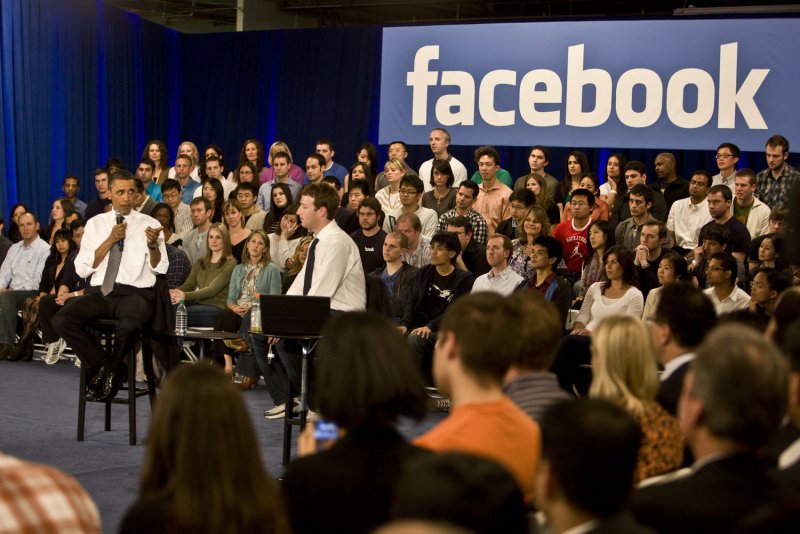President Barak Obama speaks at a "town hall" at Facebook headquarters, with Facebook CEO Mark Zuckerberg (R) in Palo Alto, California on April 20, 2011. UPI/Terry Schmitt |
License Photo
UNIVERSITY PARK, Pa., Oct. 14 (UPI) -- Use of social media may be able to affect the spread of a disease, said U.S. researchers who tracked more than 300,000 tweets on the H1N1 vaccine.
Marcel Salathe at Pennsylvania State University used Twitter data to track vaccination rates and sentiments.
The study, published in the journal PLoS Computational Biology, said anti-vaccination communities cluster on Twitter and in real, geographical space -- likely resulting in under-vaccinated communities that are at great risk of local outbreaks, the study said.
Salathe said when unvaccinated individuals cluster together, herd immunity -- a population-level immunity that occurs when a critical mass has been vaccinated -- no longer affords much protection against disease.
"By definition, herd immunity only works if unvaccinated, unprotected individuals are distributed sparsely throughout the population, buffered from the disease by vaccinated individuals," Salathe said in a statement. "Unfortunately, the data from Twitter seem to indicate that the buffer of protection cannot be counted on if these clusters exist in real, geographical space."
The opposite is also true -- the highest positive-sentiment users of the H1N1 vaccine were from New England, the region with the highest H1N1 vaccination rate, Salathe said.















